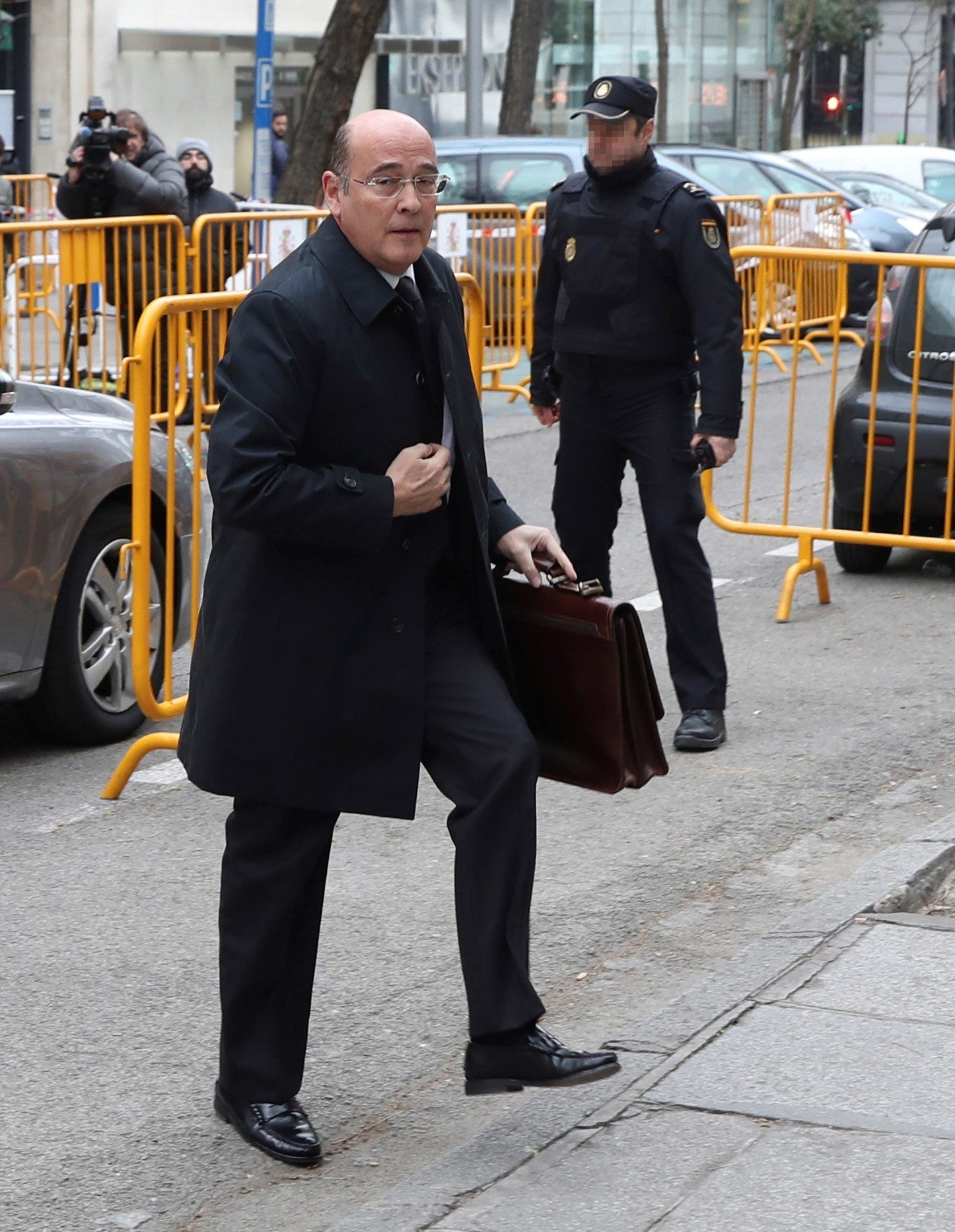"Observance of the law came ahead of civic coexistence". That was the statement by Spanish Civil Guard colonel Diego Pérez de los Cobos, the person in charge of the police operation during the Catalan independence referendum on 1st October last year, during his testimony at the Supreme Court today.
De los Cobos strongly criticised Catalan Interior minister, Joaquim Forn, the head of the Mossos d'Esquadra (Catalan police), Josep Lluís Trapero, and the force itself, accusing them of alerting the public to details of the operation, enabling them to set up human shields in front of polling stations and block the work of the state's security forces. He also accused them of doing everything possible to help the referendum and hamper the work of the Civil Guard and Spain's National Police.
In fact, the colonel supported the entirety of the public prosecutors' thesis that it was an agreement between the Catalan government, the Mossos and pro-independence organisations which made the referendum possible.
The head of the police operation said that during a meeting on 28th September, he called for the referendum to be cancelled as the "easiest" way to avoid disorder, in response to worries expressed by the government in expectation of thousands of people in the streets.
The colonel said that the Catalan government argued that civic coexistence was a "higher interest" which couldn't be altered by the police's actions. During the meeting he held with Joaquim Forn, de los Cobos warned that the simplest way to avoid any incidents was to cancel the vote.
According to sources present during his testimony, the colonel also accused the Mossos of disseminating information to avoid legal orders and allow the referendum to go ahead. He criticised the resources deployed by the Mossos, describing them as insufficient, saying that it wasn't "functional" to send two agents to each polling station.
In a meeting the witness described as "tense", Forn told him, according to the same sources, that his government's posture was that coexistence had to be preserved and that the law had to be applied following a criteria of congruence and proportionality in the case that the forces of order ended up taking action during the referendum.
About the disproportionality of the operation, and questions from the defence, de los Cobos explained that he only had access to part of the order from the Superior Court of Justice of Catalonia, and was not aware of the part recommending that they shouldn't break coexistence. This was unlike the Catalan government, which did have access to the full text, because they had officials facing charges who had access to the whole case.
Denying the injuries
De los Cobos denied that 1,060 people were injured during the day, saying they were only helped by the health services.
He also said that the choice of which polling stations the police should act at was made based on criteria of effectiveness, that the state's security forces are not affected by the Catalan Parliament's ban on the use of rubber bullets, that they also used tear gas and that they decided to suspend the planned meetings with the Mossos on the day itself when they saw the situation in the morning. They informed the Civil Guard and National Police of the cancellation, but not the Mossos, who arrived to find no one there.
The last witness
De los Cobos said that, during the day of the referendum, it was necessary to use the "minimum essential force" facing the "organised passive resistance" and the "direct violent acts" the police were received with.
In different reports made available to the judge after the events of the referendum, he accuses the Mossos of "absolute passivity and zero collaboration" and that they even tried to "hinder and obstruct" the work of the National Police and Civil Guard.
Specifically, in a report sent to Barcelona's court of instruction number 7, investigating the attacks on 1st October, he says that a number of Mossos agents "hurled insults" against the National Police and that a unit of the Catalan police hindered an operation at Pau Claris school in Barcelona.
De los Cobos arriving at court today
With de los Cobos, Supreme Court judge Pablo Llarena ends the wave of testimony he has heard this week, which has seen the former director general of the Mossos, Albert Batlle, and former Catalan ministers who resigned over the summer before the referendum, Jordi Jané, Neus Munté, Meritxell Ruiz and Jordi Baiget, all giving statements to the court.

